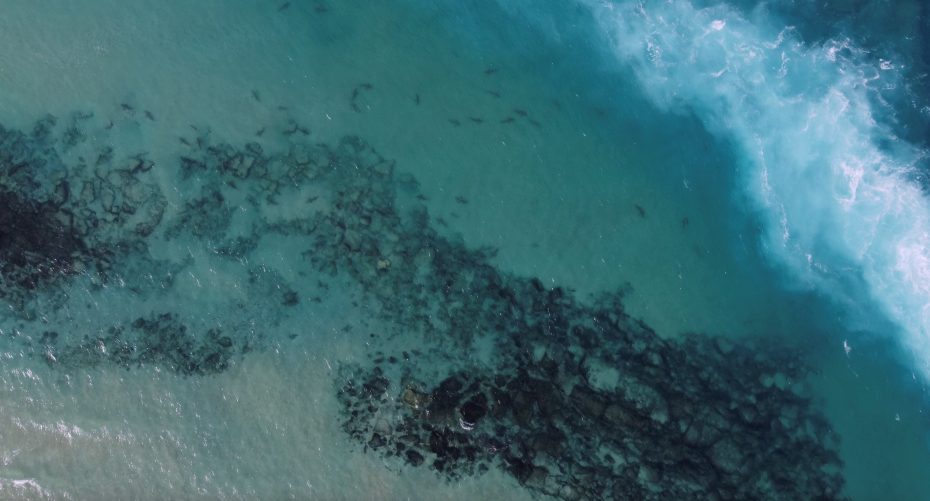‘Begging behaviour’ resulted in rare shark attack

Aerial view of the dusky shark aggregation at Hadera. The white water on the right is the warm outlet from Orot Rabin power station. Credit: Envato elements
Researchers believe the ‘begging behaviour’ of sharks regularly fed food scraps by humans could explain the fatal mauling of a snorkeler off the coast of Israel earlier this year.
After studying images and footage of the extremely rare shark attack in April, which happened in waters at Hadera, 40km north of Tel Aviv, the researchers say it was perpetrated by at least two dusky sharks.
Despite their large size, dusky sharks are not known to bite humans and usually live on a diet of small fish species and crustaceans.
It was the first recorded human fatality from sharks in waters off Israel since the country was founded in 1948, and the first time dusky sharks have been positively identified in a human fatality case around the world.
The sharks gather in the waters around the Orot Rabin power station in Hadera, attracted by the warmer waters discharged by the plant, and tourists and locals have been known to get in the waters to watch and film the sharks as well as feed them scraps of food.
This ‘artificial feeding’ makes sharks less cautious towards humans, developing begging behaviour that drives them to approach humans to obtain a food reward.
The 40-year-old victim was snorkelling more than 100m away from Hadera beach to observe the sharks and was equipped with a GoPro camera.
The researchers say a slight electro-magnetic signal emitted by the camera may have been picked up by the sharks and identified as potential prey.
The initial bite may have targeted the camera but unintentionally wounded the snorkeller.
The smell of the blood in the water and the sound of the bite would then have alerted other sharks in the area, triggering a feeding frenzy.
Although humans are non-instinctive prey for the sharks, the competition to access the food resource would have overridden the species’ usual behaviour.
The researchers say tragic incidents like this can be avoided through more regulation and local authority control around artificial feeding.
Kristian Parton, a marine biologist and shark scientist from the University of Exeter said: “Artificial feeding, when it is regulated and monitored by authorities, can have massive benefits for ecotourism and local economies as well as improve the perception of sharks in terms of people being able to see them and spend time in the water with them.
“There are lots of places around the world where there are provisioning sites that work well, but there are others where there’s just no enforcement, no regulations – where people are able to get into the water with their own food.
“Sadly, in Hadera it wasn’t being done in the right way. To make shark-watching tourism safer, local authorities need to eliminate the begging behaviour in sharks, which can only be achieved by establishing and enforcing a complete and total ban on all artificial feeding by the public, as well as banning spearfishing, which can often fuel the impulse in sharks to obtain food from humans.
“The worst solution would be to unselectively eliminate all sharks present in this area in the form of a cull – especially since the responsibility for this specific incident lies essentially with humans.”
“When Competition Breaks the Rules: Feeding Frenzy as a Trigger for Unexpected Fatal Shark Predation Bites on a Human Sea-User by Non Traumatogenic Carcharinids in the Oriental Mediterranean” is published in the journal Ethology.



